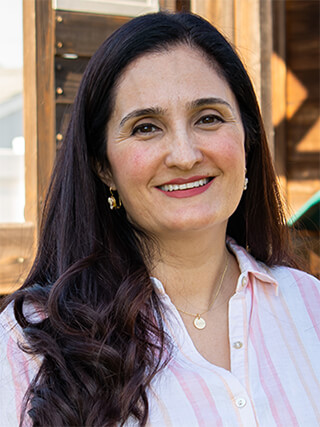
As child care workers and working families alike continue to struggle as a result of our country’s broken early childhood education system, AFSCME child care providers have taken the lead in urging the federal government to take action.
They have spoken up again and again to highlight the paradoxes surrounding child care in America: Child care is an essential service that supports our entire economy, yet wages are so low that workers in the industry struggle to make ends meet and costs are so high that they are often prohibitive for working families.
Last week, it was up to Miren Algorri, an AFSCME family child care provider from California and a member of Child Care Providers United (United Domestic Workers/AFSCME Local 3930), to speak up on behalf of child care workers and working families everywhere.
“I am asking that the federal government take action and bring forth a comprehensive early childhood education plan that funds child care for all families who need it,” she said at a virtual event organized by the Committee for Education Funding (CEF) and attended by about 50 congressional staff members. “Failing to do so not only hurts us as providers, but it hurts families, and women in particular.”
Algorri, who owns Little Blossoms Child Care in Chula Vista, said there are increasingly “child care deserts” in communities across the country: places without affordable child care for working families who need it.
“Too many family child care providers are being forced to close their doors – or are never able to open them in the first place,” she said.
For one thing, federal programs such as Head Start and the Child Care and Development Block Grant (CCDBG) are inadequate, Algorri said. CCDBG only serves one in eight eligible children and the subsidy rates are too low. Moreover, low wages provide little incentive to individuals to open family child care facilities.
“Child care is a profession dominated by women, and many are women of color. We’re used to feeling that our work is undervalued,” Algorri said. “Yet, throughout the COVID-19 pandemic, we were called heroes by our politicians and we were told our work was essential.
“And yet on average, we make roughly $13.50 an hour,” she continued. “Here in California that’s below minimum wage, and nowhere in this country is that a livable wage. So, it is no wonder many of us are forced to close our doors and find other work.”
AFSCME supports President Joe Biden’s early childhood plan, as outlined in his State of the Union address: It would cut child care costs in half for most families and provide universal pre-kindergarten for 3- and 4-year-olds.
Any new child care legislation must also help improve the wages, benefits and working conditions of child care providers, as well as cover the costs of their professional development and training.
“President Biden laid out a federal program in the Build Back Better plan, and we need help to ensure something like that passes sooner rather than later. These children cannot wait, and neither can we,” Algorri said at the CEF virtual event, which included educators and other experts. “If we fail to invest in child care now, we will fail these children. Their futures rely on us, and on the federal government to step up and fund programs that set them up for success.”
